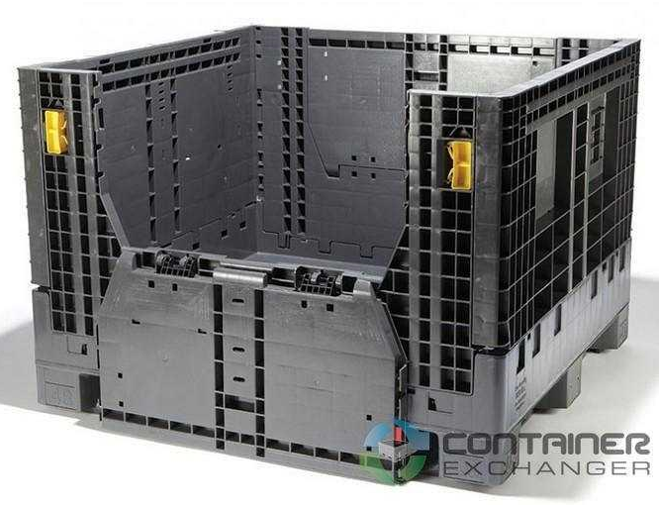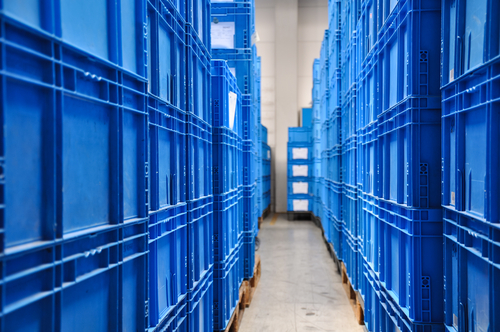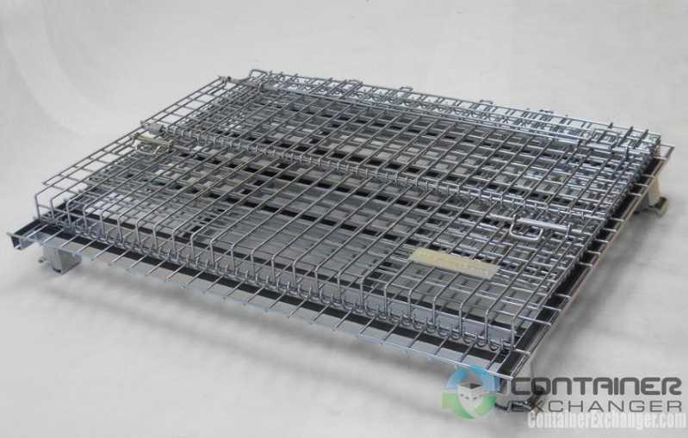Bulk collapsible containers are perfect for long- and short-term storage. They tend to be more affordable than other types of storage containers, while still providing the same structural integrity. With collapsible containers, you can also easily fold up your boxes and totes, so they take up less space when they’re not in use. As beneficial as these containers can be, you should spend some time asking yourself a few key questions before buying a new set of containers, such as what the container will be used for and what kind of material is best for your business. Some containers may suit your needs and those of your business better than others. Keep these considerations in mind as you shop for collapsible containers.
1. What Will the Container Be Used for?
Your first step is to consider how you plan on using the container. If you plan on shipping your collapsible containers, make sure they close properly so you don’t have to worry about your goods spilling out during transit. If you plan on keeping your containers stationary and using them for storing and organizing your goods, keep in mind that your employees will need to access what’s inside quickly. In this scenario, containers with open slots may better suit your business.
You can also invest in metal wire baskets, so your employees can instantly see what’s inside without having to check the container label. If you want to use your containers for more than one purpose or task, try to find versatile containers that can meet all your needs simultaneously.
2. What Type of Material?
You have a lot of choices when it comes to what kinds of materials your containers are made with. Containers may be made with mesh metal, solid wood or some kind of plastic such as injection-molded high-density polyethylene (HDPE). Consider how the containers will be used when choosing what kinds of materials to invest in. Food-grade plastic bins or totes are perfect for food storage. These kinds of containers are also durable and affordable, helping you extend the life of your storage materials.
Metal containers tend to be more durable than other kinds of collapsible containers, but they can also be susceptible to rust. If you’re using your containers outside, plastic may be the better choice for your business. If you’re using your containers with a conveyor belt, watch out for sharp edges that could damage your equipment.
3. Does the Container Need to Be Stackable?
Investing in stackable crates and totes can also benefit your business if you’re eager to make the most of your storage space. These containers usually feature interlocking walls and perforated edges, so they securely stack on top of each other. If you buy containers with open slots, you and your employees can still easily reach inside and grab the items you need without having to break down the containers or open the lid. They’re perfect for facilities that store a wide assortment of items.
4. New vs. Used
You’ll also have to choose between new and used collapsible containers. Both are great options for your business but consider the life of your containers and how they will be used in the future before committing to one or the other. If you want to use your containers for as long as possible, new may be the better choice, but you’ll need to spend more money upfront. The useful life of the average container is about 15 years when used for shipping purposes. New containers can also help you brand your business, while used containers may be dissimilar in size, shape or color.
If you’re looking to save money on your storage containers, used collapsible bins tend to be the cheaper option. If you invest in used containers, make sure you buy them from a reputable reseller. Thoroughly clean and inspect these containers before using them for storage or shipping.
5. Do You Need a Lid?
If you plan on shipping your collapsible storage containers or if you need to protect your goods from the elements and other potential threats, you may want a lid to make sure you can securely open and close your containers and keep out potential hazards. These containers may come with certain space limitations, so if you’re looking to keep your containers open and store as many items as possible in a single container, you may be better off without a lid.
As you can see, there are lots of considerations to keep in mind as you compare different collapsible containers. Consider the full life of your containers and whether they will be used for different tasks before making a final decision.


